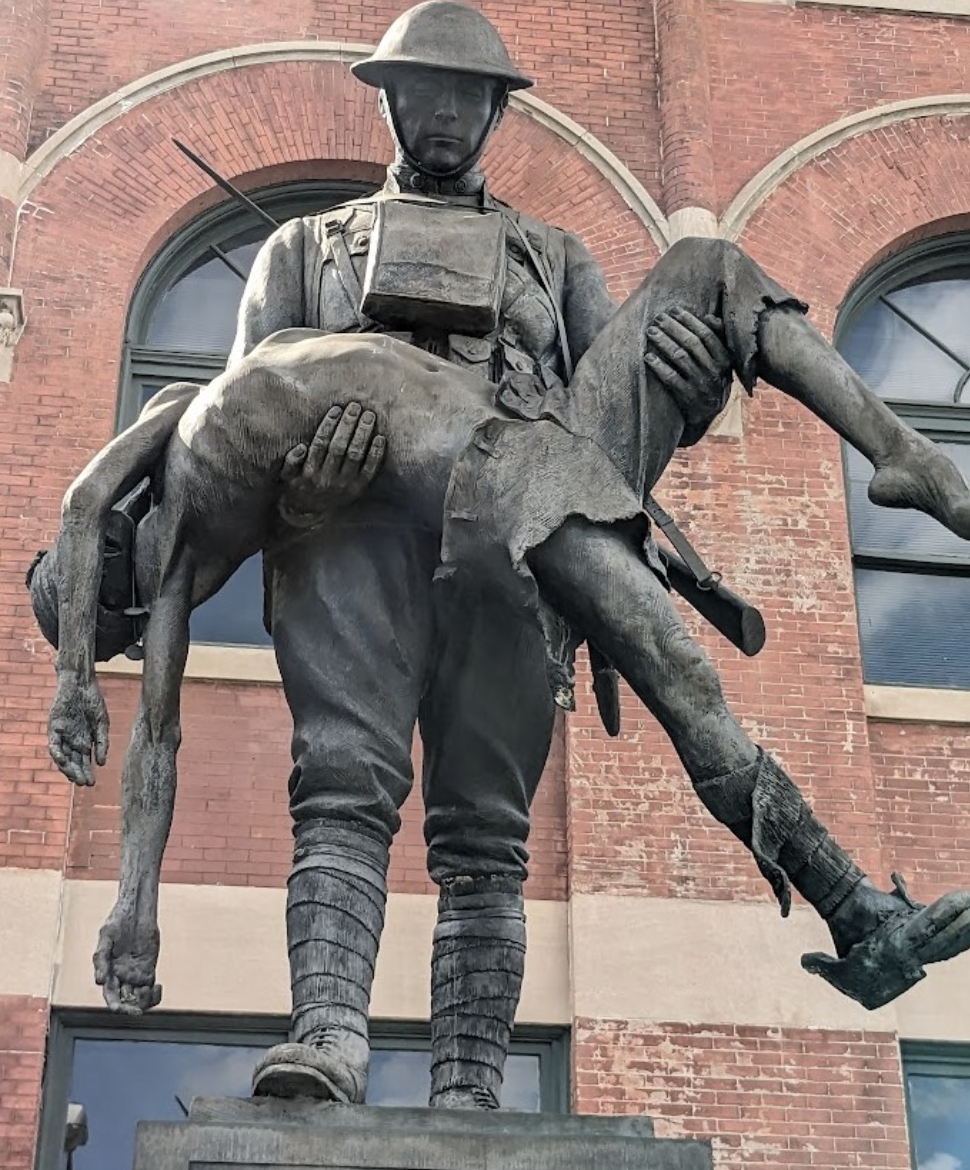Over this past summer, the Conservatio Program took a trip to several Southern historical sites, exploring new places and past treasures. For the professors present on the trip, the experience was eye-opening, inspiring, and equally horrifying. The impact of this journey not only changed the perspectives of these teachers but will also affect the St. Anselm community as a whole.
The Conversatio department trip was inspired by a grant from the Wabash Center. The Wabash Center’s mission statement is “Our teaching and learning in theology and religion seeks to enhance and strengthen education in theology and religion in theological schools, colleges, and universities in the United States and Canada.” The trip, and grant, were titled “Pilgrimage South ”. The trip lasted three days beginning by landing in Atlanta, Georgia. The next day the group traveled to Montgomery Alabama and ended on the last full day in Memphis Tennessee.
Some highlights of this trip were The National Civil and Human Rights Museum, The King Center, The Legacy Museum, The National Memorial for Peace and Justice, and the National Civil Rights Museum. The roster of professors included a wide variety of subjects including Philosophy, Politics, Chemistry, Fine Arts, English, and Theology. Dr. Favazza, President of Saint Anselm College, and his wife Paddy, who are both from Memphis, and Dr. Diaz, the Chief Diversity Officer for Saint Anselm, joined the rest of the group in Memphis.
The goal of this trip was to enhance the teachings and community of Saint Anselm College on a general level. Dr. Scheopner Torres, Director of the Conversatio Program, in an interview, explains, “We know that we need to bring more voices to the Conversatio curriculum. What are some other voices that we could bring? And it was really powerful. We saw where Dr. King was born, where he was buried, where he was assassinated.
There was a speaker that we met at Rhodes College Dr. Luther Ivory whose expertise is on Dr. Martin Luther King Jr. He was a phenomenal speaker. Dr. Ivory told us about his legacy and what his career was, there were so many things that I didn’t know.”
As Dr. Scheopner Torres mentioned, Dr. Ivory was an expert teacher for the goals of this trip, he serves as an associate professor of Religious Studies at Rhodes College in Memphis, Tennessee. He teaches courses on the Spiritual-Moral Dimensions of Dr. Martin Luther King Jr. The Wabash itinerary provided the Conversatio Program a unique opportunity to learn more about the black experience in the U.S. and explore new and different perspectives. The main reason for this trip was the hope that these teachings would be brought back to St. Anselm College, brought back to the community, a core part of the Conversatio teachings.
In fact, in the Spring Semester of Conversatio, freshmen will read I’ve Been to the Mountain- top, Martin Luther King Jr.’s last speech. The lessons of this trip seem to align with the values of Conversatio. Dr. Banach explains the impact of the trip already with his curriculum, “I teach an ethics course and I’ve been using examples from the trip as well since one of the things that we’re doing in ethics is called ‘Design Thinking’, where you start out by empathizing with the real effects of different policies in each of the issues that we talk about, so having a concrete experience of the way in which people’s lives were affected and how they suffered will inform all of those. I teach a unit on systemic racism, in human nature seminar and I teach one in my ethics class, and we talk about the legacy of slavery in my modern philosophy class. It covers the period… But in Conversatio boy, we’re going to be using the speeches and the songs and things that we learned during our rhetoric unit in the second semester. And the first semester of Conversatio is all about the community, the individual, and the divine. There’s, probably, no clearer example of the way in which the type of hope that’s inspired by faith was necessary to cause human change and to bring the community together, to react against injustice…Shows how the Catholic intellectual tradition and the things we learn in Conversatio helps to produce some more inclusive, diverse, just, and equitable students…the thing that changes minds is the actual contact with human suffering and human joy.”
When asked about the future plans of the department, with regards to the lessons of the trip, Dr. Sheopner Torres responded, “We are doing a ‘Come Friday’ Session in November. We’re planning, the pilgrimage group, to talk with
the whole Conversatio department and faculty about what we all saw and learned and to give some ideas for how we could enhance the curriculum. What are some changes that we need to make? You know, knowledge and professional development that we need as faculty to be able to engage students in conversations. I mean, it was an amazing trip. It was also a really difficult trip.
So these aren’t easy topics to talk about. So what are some of the things that we can do? We need to do this to help prepare us to engage students in these conversations. We’re hoping to bring Dr. Luther Ivory back to campus here so that he could speak because I think, we all think, he’d be absolutely incredible…We had a couple of group reads that we did. We’re also trying to see how we could get others to read some of those books. So those are some of the things that we have in the works right now… But we’re still plotting and planning.”


